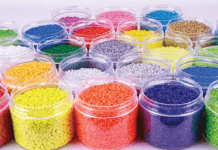
On 2 April, the Prime Minister of India, Narendra Modi, and Australian Prime Minister Scott Morrison signed the India-Australian Economic Cooperation and Trade Agreement on goods and services, which slashed the import duties on several items.
Australia and India have signed an FTA (free trade agreement) that slashed the import duties on an array of products such as wool, nuts, macadamia, meat, coal, and wines from Australia, and textiles, pharmaceuticals, leather, jewellery, and gems, goods, and engineering from India.
Both the nations have provided their concessions in the services sector as well. The countries are willing to support the recognition of licensing, registration procedures, and professional qualifications between the expert services bodies. Besides, Australia will also offer new access to the youth of India who is participating in the country’s working holidays.
The signed agreement will take bilateral trade from billion US$27 to billion US$45-50 in the coming five years. In addition, it is expected that India will create one million jobs in the foreseeable five years. At an event, Piyush Goyal, the commerce and industry minister, said all these in a press conference after signing the agreement with the Trade Minister of Australia, Dan Tehan.
Participation of Morrison and Modi in a free trade agreement
The free trade agreement is officially named Australia-India Economic Cooperation and Trade Agreement. The agreement was signed in the presence of Narendra Modi and Scott Morrison. The negotiations were re-launched in September 2021, and it was signed on Saturday. However, it is not expected that both the countries to widen the Comprehensive Economic Cooperation Agreement to include more components like agricultural trade.
Modi said that the signing ceremony was a watershed moment for bilateral relations during the event. Based on this agreement, both the countries will be able to improve the supply chains’ resilience and keep the Indo-Pacific region’s stability intact.
All the tariffs will be removed on over 85% of the exports of Australian products to India, thus rising to about 91% over the ten years. On the other hand, 96% of Indian products imports will get into Australia duty-free, according to the statement provided by the government of Australia.
The excluded products
Significantly, many of India’s sensitive agricultural and dairy products like milk and several other dairy products, walnut, chickpeas, wheat, pistachio nuts, bajra, rice, sunflower oil, sugar, apple, and oil cake have been removed from the pact of free trade.
However, there is a provision that both the nations will cooperate in promoting agricultural trade as part of the agreement and put efforts into making an improved agricultural MoU (Memorandum of Understanding). Some of the other items excluded are – silver, gold, platinum, iron ore, jewellery, and most medical devices.
According to Morrison, the agreement will establish a wide range of opportunities for the Australian service providers and producers bound for India. It is valued at up to billion US$14.8 every year.
India was the 7th largest trading partner of Australia in 2020, and the trade was valued at a billion US$24.3, according to the government of Australia. According to Tehan, Australia’s goal is to make India one of the top three export markets by the end of 2035.
As per the Commerce & Industry Ministry’s release, FTA will translate into zero duty on 96.4% value of the exports right from the first day of entry.
The sectors that will gain from this are apparel and textile products, some fish and agricultural products, footwear, leather, sports goods, furniture, machinery, jewellery, railway wagons, electrical goods, particular pharma products, and medical furniture and devices.
Tariffs on sheepmeat and wine
Australia will benefit from the instant removal of 30% tariffs on sheepmeat and a 2.5% tariff on wool. Tariffs on wine having a minimum import price of US$5 each bottle will be deduced from 150 every cent to 100 every cent on entry. Tariffs up to 30% on onions, avocados, broad, adzuki, kidney beans, shelled pistachios, cherries, raspberries, blueberries, currants, and blackberries will be removed in the coming seven years.
Tariffs on lentils, almonds, pears, mandarins, strawberries, and apricots will also be reduced. Therefore, it will improve opportunities for the horticulture industry of Australia for supplying the increasing food demand of India.
The India-Australian Economic Cooperation and Trade Agreement can prove beneficial for the countries. It is right that both countries are befitted from reducing tariffs up to import costs. Besides, it will help to grow the countries’ agricultural aspects equally.







